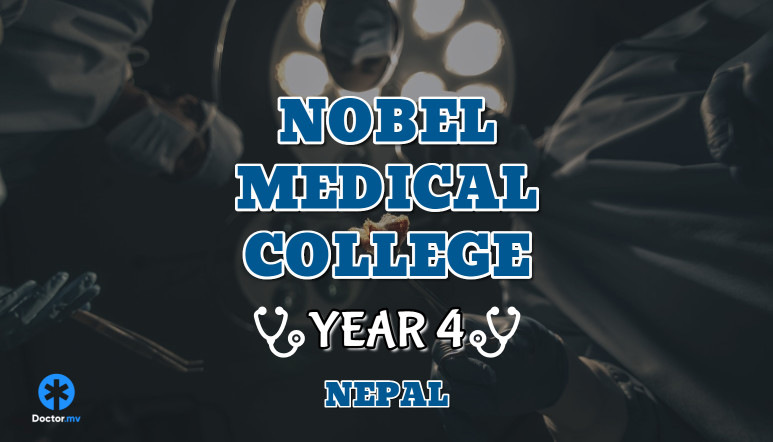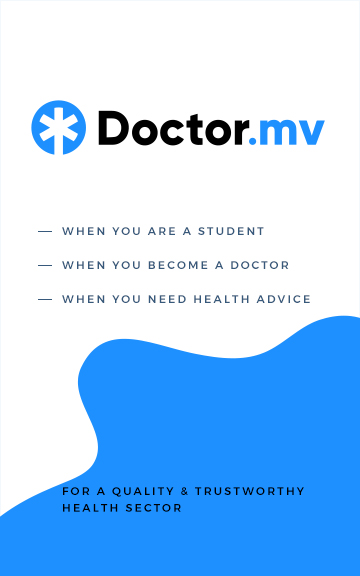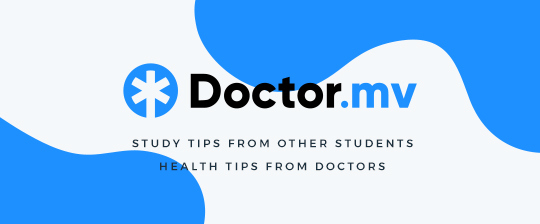I'm MOHAMED MUSHAAID and this is My Medical Student Life

University
Nobel Medical College and Teaching Hospital
Current Year
Fourth
Medical Specialty Interested in
Hematology/ Laparoscopic surgery
One Word that Describes You
Helpful
Most Intriguing subject in Medical School
Surgery
What was your path to Medical School like?
Starting from the very top; I studied pre-school from Ahmadiyya school, then on to Primary education at Ghiyaasuddin School in 1998. Studied in Ghiyaasuddin School from grade 1-6 and less than half way into grade 7, in 2005 I left to Vellore, India to get a Bone Marrow Transplant done as I was a Beta-Thalassemia major. My transplant was a success and I rejoined grade 7 the next year. The rest of my academic years were pretty uneventful. Secondary education from Dharumavantha School and Higher Secondary from CHSE. I was never a high achiever in any of those school, although I do consider myself bit above average.
After A'levels, I wanted to join IGMH or ADK Hospital for some medical exposure. I did get a call for an interview from IGMH, but unfortunately at that time I was in my island so I couldn't attend. I did apply after I came back to Male', but there were no empty slots. So I applied to other places and got a job at the Ministry of Environment and Energy as a receptionist, then to an Assistant Media Officer which I spent 8 months at.
During my time working I was actively looking for a Medical School to get enrolled in. Bangladesh, China, India, Malaysia, Sri Lanka, Ukraine and Russia are from the countries I considered. In the end, taking advice from a few doctors who studied in Nepal and with the help of Glonet I decided to join Nobel Medical College and Teaching Hospital. And so here I am, for the past 5 years.
What was the biggest difference between your expectations of entering Med School when you were doing A'level, and the actual experience of being there?
The biggest difference personally for me is how the lessons are delivered and how much self studying you have to do in order to cover the syllabus. The transition from a spoon fed, presentation and notes syllabus to a professor giving an hour long lecture was certainly something I expected, but not to the extent I experienced.
Others were pretty much same. Large lecture hall full of students, yes! Old professors who refuse to use the microphone and power-point presentations, yes! Being roasted during conference and rounds, absolutely!
How is your daily routine like?
Currently, I am in Fourth year of my Course. I have completed all my classes and clinical postings and my Final exam is tentatively scheduled for late December 2018. So my whole day revolves around studying at home. I wake up for Fajr prayer and then have a coffee. I need at least an hour to have my coffee and "properly" wake up. During this time I check my mails, go through Social media accounts: Facebook, Instagram, Twitter, check the Maldives news websites and have breakfast. Sharp at 8 am my phone automatically goes to "screen downtime", means now its time to hit the books. I spend most of the morning studying the allocated subject for the day, with short breaks in between and a bit longer break for showers.
In the afternoon, I have lunch. If my wife is back from duty (Intern at same College), we eat together while watching an Anime. If not I eat alone. After lunch, I go upstairs for group studies and join 3 other Maldivian students who will also be sitting for their Finals. We discuss question papers and do MCQs. In the evening I mostly do question papers and make notes. If my wife needs any help preparing dinner, I assist her. After that we have dinner while watching an Anime. I sleep pretty early now around 10 pm. I used to stay up late till 11 pm or 12 pm to play video games on my PS4, but its a leisure I cannot afford now with exams so close.
Which experiences in Medical School inspire you?
Seeing Laparoscopic Procedures really inspires me. I've seen a lot of procedures done during my surgery and anesthesia posting. The level of precision and the manipulations of a skilled Laparoscopic Surgeon just awes me. It may sound weird, but I think that Laparoscopy and any Minimally invasive surgery which uses the Fiber-optic principle is very much like playing a video game. You look at the screen and Manipulate using your fingers. And as a person who played and still plays a lot of video games, the first time I saw a Laparoscopic procedure up close, I felt it! I felt like this is what I want to do for the rest of my life.
I've had the luck to assist in a number of Laparotomy procedures as early as during my third year. Procedures ranging from small hernias to duodenal perforations with peritonitis which took more than 4-5 hours. Every time, I scrub and go into the Operation Theater as a scared little boy, but come out having learned something new and even more inspired to learn what I didn't know. So Surgery in general have been very inspiring.
In your opinion, what are the top 3 countries to study medicine in?
For Maldivian Students, I'd say India, Malaysia and Nepal.
Name your favorite medical text book.
Clinical Pharmacology by Peter N Bennett and Morris J Brown.
What do you believe to be some of the most pressing health issues today? Why?
For a single most pressing issue, I'd say its the overuse and misuse of Antibiotics. It's an issue even in Maldives that need to be addressed in all levels from policy makers who regulates it, doctors who prescribe it, Pharmacies distributing it, patients who uses and even us, Medical students studying it. We all have a responsibility in the emerging Antibiotic resistance. Doctors should not prescribe unnecessary Antibiotics. We need to abolish the notion of "the more medicines - The better the Doctor" through information and education. We need to educate patient about the importance of compliance and adherence to the prescribed Antibiotics. And stop, if not control the distribution of over the counter Antibiotics without prescription.
Also an issue in Maldives that largely goes under the radar is Genetic diseases. As a small country with a small population we need to accept that we are highly susceptible to genetic disorders. More manpower and resources need to be allocated create awareness among public to decrease incidence and ensure a healthy young generation.
What is the most effective way to study in Medical School?
The most effective way for me is spaced repetition. I find this way as an easy way to learn things and to retain the information longer. But the disadvantage is that its time consuming and you never feel like you are going forward, you feel like you're running around in circles. So it might not be for everyone.
Since most of the readers would know the technique, I'll just skim how I do it. First read, then really read it, then read + highlight the important parts. I also make a habit to write the drugs and doses on a post-it note and keep it in the corner of book for quick reference. After that, allocate a day for re-reading only. During that day you read only the highlighted stuff. Also, make a habit of re-reading the highlighted notes whenever you come across them, for example while searching for another topic. If you think its important and you are not in an absolute hurry, just re-read it in your mind before flipping the page.
Do you need High grades to become a decent doctor?
No, I don't believe so. Even if you get an average grade you can still be a respected and skilled doctor. A percentage on a piece of paper does not define your competency as a Medical Professional. I believe that it is the effort that you put into learning, and how much you practice in Clinic by applying that knowledge is what makes you a decent doctor, and this does not necessarily translates to a higher grade.
Finally, what is the one tip/advice you want to give to our readers?
For those who are looking forward to enroll in Medical School: I would like to advice to not stop learning even if you are in your gap year, waiting for admission or already enrolled. Do research about your syllabus, about your college/university, even the geography of the location where you are planning to stay. The transition from High school to College is real, and it's hard. The more you are informed, the more easier the transition.
For those who are in Medical School: Never give up. You guys are awesome!
The My Medical Student Life series was created for the sole purpose of helping medical students and aspiring doctors on their journey to become a successful Maldivian Healthcare Professional. Have a suggestion, idea or question? Email us.



Leave a comment
0 Comments